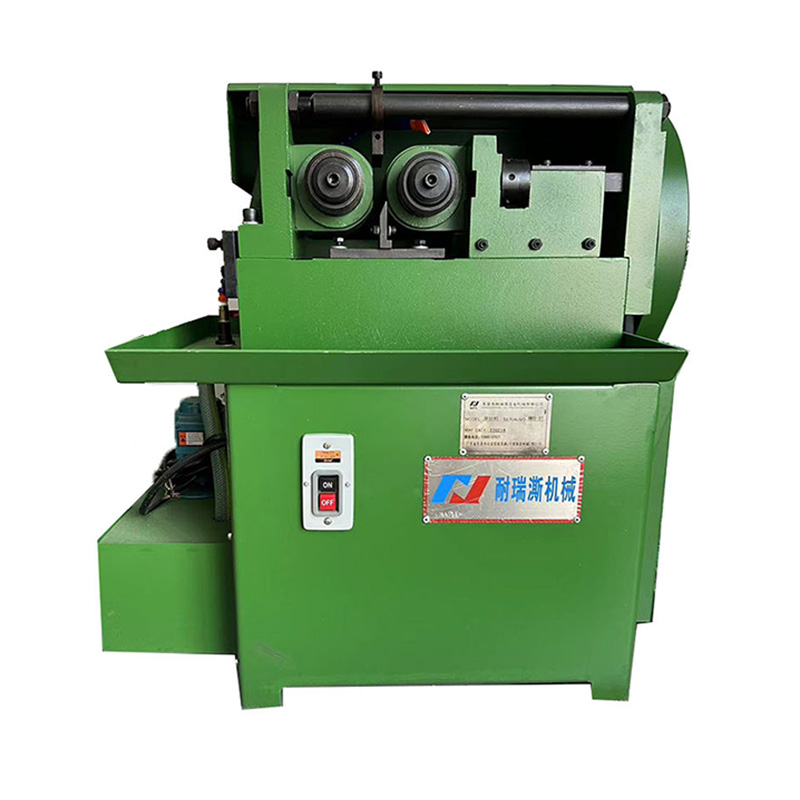Unveiling the Small Rebar Thread Rolling Machine: Enhancing Efficiency in Construction
2024-04-16
In the dynamic world of construction, efficiency and precision are paramount. Every tool and machine plays a vital role in ensuring smooth operations and high-quality results. Among the arsenal of equipment, the Small Rebar Thread Rolling Machine stands out as a specialized device designed to streamline the process of threading rebar. Let's delve into what exactly a Small Rebar Thread Rolling Machine is and how it contributes to the construction industry.
Understanding the Small Rebar Thread Rolling Machine
A Small Rebar Thread Rolling Machine is a specialized piece of equipment used in construction and metalworking industries to create threaded patterns on rebars. Rebars, also known as reinforcing bars, are essential components in reinforced concrete structures, providing strength and stability. Threaded rebars are commonly used in applications where mechanical connections are required, such as joining structural elements or anchoring bolts.
Functionality and Operation
The Small Rebar Thread Rolling Machine operates on a simple yet effective principle: it utilizes a set of dies to deform the surface of the rebar, forming precise threads along its length. The machine applies pressure and rotation to the rebar, causing it to roll between the dies and undergo plastic deformation, thereby creating the desired thread profile. This process results in accurate, high-quality threads with tight tolerances and excellent surface finish.
Key Components
A typical Small Rebar Thread Rolling Machine consists of several key components:
1. Main Frame: Provides structural support and houses the motor, gearbox, and other critical components.
2. Rolling Dies: Mounted on rotating spindles, these dies come in various sizes and thread profiles to accommodate different rebar sizes and threading requirements.
3. Feed Mechanism: Controls the feeding of the rebar into the threading area, ensuring precise alignment and consistent thread pitch.
4. Motor and Gearbox: Power the rotation of the rolling dies and provide the necessary torque for thread rolling.
5. Control Panel: Allows operators to adjust parameters such as thread pitch, feed speed, and rotation speed for optimal threading performance.
Advantages of Using a Small Rebar Thread Rolling Machine
The adoption of Small Rebar Thread Rolling Machines offers numerous benefits to construction professionals and contractors:
1. Efficiency: Thread rolling is a fast and efficient process, allowing for high-volume production with minimal downtime.
2. Accuracy: The precision of thread rolling ensures consistent thread dimensions and pitch accuracy, meeting stringent quality standards.
3. Strength: Threaded connections created by thread rolling exhibit superior strength and resistance to loosening compared to other methods.
4. Versatility: Small Rebar Thread Rolling Machines can accommodate a wide range of rebar sizes and thread profiles, offering versatility in application.
5. Cost-Effectiveness: By eliminating the need for additional hardware or accessories, thread rolling reduces material waste and labor costs associated with traditional threading methods.
Applications in Construction
Small Rebar Thread Rolling Machines find extensive use in various construction applications, including:
- Reinforced concrete structures
- Bridge construction
- Highway and infrastructure projects
- Building foundations
- Industrial facilities
Conclusion
In conclusion, the Small Rebar Thread Rolling Machine plays a crucial role in the construction industry by facilitating the efficient and precise threading of rebars. With its ability to produce high-quality threads quickly and accurately, this specialized machine enhances productivity, reliability, and safety on construction sites. As construction practices continue to evolve, the Small Rebar Thread Rolling Machine remains a cornerstone of modern building techniques, contributing to the strength and durability of structures worldwide.



